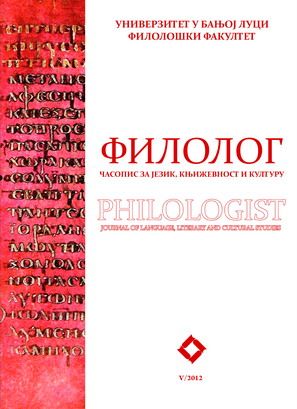
У сусрет неухватљивом, блиском лику Другог
Review of: Knežević, Marija (2011), Ogledi iz angloameričke književnosti, Nikšić: Filozofski fakultet.
More...We kindly inform you that, as long as the subject affiliation of our 300.000+ articles is in progress, you might get unsufficient or no results on your third level or second level search. In this case, please broaden your search criteria.

Review of: Knežević, Marija (2011), Ogledi iz angloameričke književnosti, Nikšić: Filozofski fakultet.
More...
Review of: Kovač, Zvonko (2011), Međuknjiževne rasprave – Poredbena i/ili interkulturna povijest književnosti, Beograd: Službeni glasnik; Tutnjević, Staniša (2011), Razmeđa književnih tokova na Slovenskom Jugu, Beograd: Službeni glasnik.
More...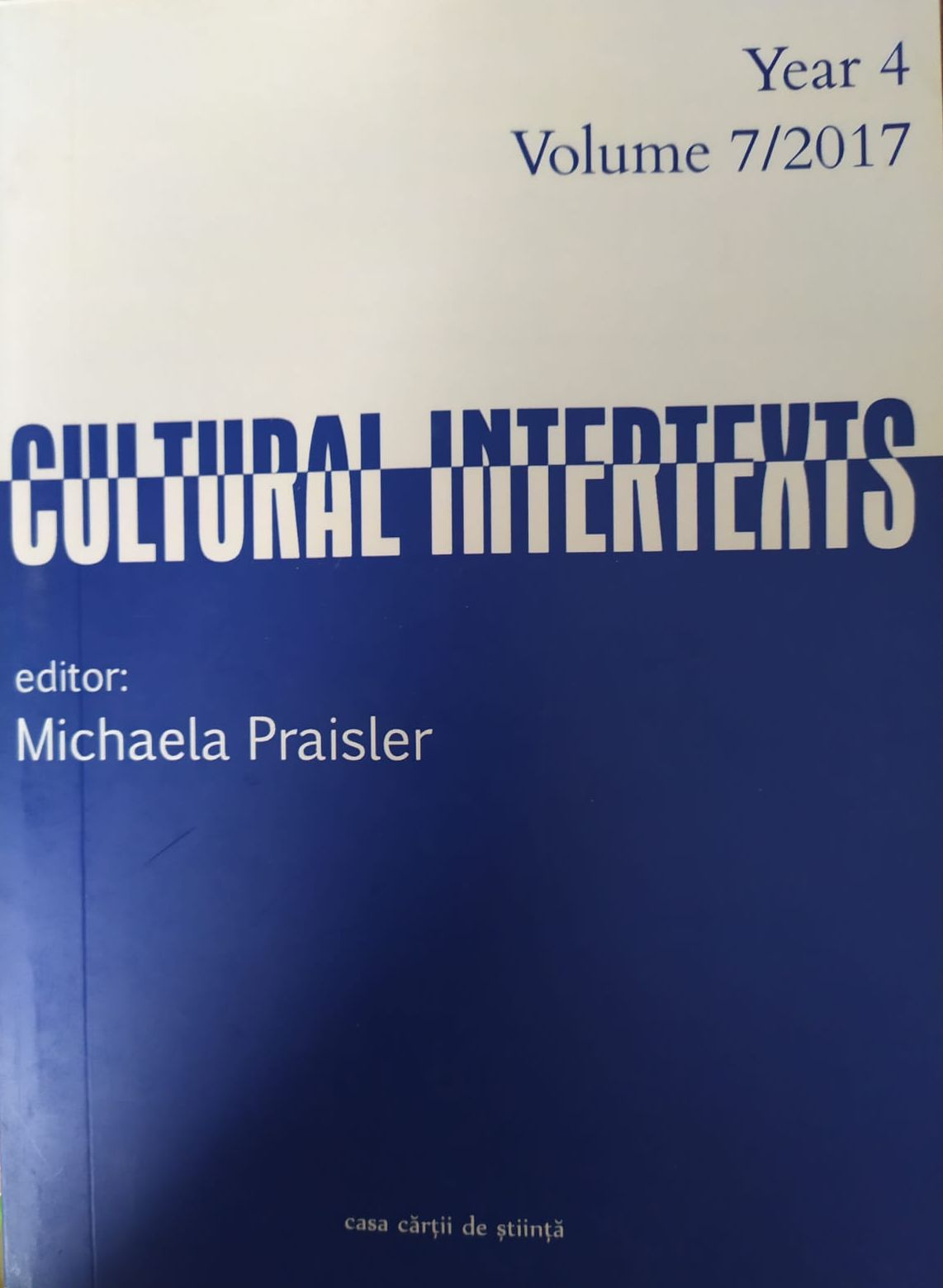
The Fright by Ellen Pickering deals with parental roles within a wide range of foster families of early Victorian upper classes and with parent-child relationships these roles imply. A special attention is drawn to the paternal figure as it is depicted in the characters of Mr Bradley and Mr Rolleston, and to the relationships they develop with Grace, whom they foster one after another. Mr Bradley is a kind and loving foster parent to Grace, but his physical and psychological absence and lack of domestic authority allow his wife and children to mistreat her. In contrast, Mr Rolleston is described as a sovereign father who is always present, being actively and directly involved with his foster daughter, but whose parental involvement derives from self-oriented reasons, making his fatherhood swing from stern coldness to affection. The contention is that the portrayals of Mr Bradley‘s and Mr Rolleston’s fatherhood depart from the socio-historical prototype of early Victorian wealthy fathers, who were often absent from their households, but nonetheless ruled them with undisputed power. By comparing the literary representations of the upper-class English father to the typical historical construct, this article aims at proving, through the deviation existing between these two, that the realism of the Victorian novel does not consist in rendering characters and their actions in consistency with socio-historical templates.
More...
A historical novel told backwards, Martin Amis‘s Time‘s Arrow recycles the shared memories of the Holocaust, experiments with narrative representation and uses black irony throughout, in an attempt at healing the past and avenging the dead, while shedding surgical light on the present and the living. The paper focuses on the aforementioned, analysing the way in which form supports content, and his story (that of a Nazi doctor) rewrites history (which emerges as a series of consecutive dystopias).
More...
In his novel The Ocean at the End of the Lane (2013), Neil Gaiman has succeeded in telling another spellbinding fairy-tale for adults. It is unique among Gaiman‘s novels, as it features a child protagonist and his specific worldview. Despite being a fantasy novel, with a narrative filled with magic and wonder, it tells the traumatic tale of memory, identity, self-sacrifice, and survival. It portrays the essential role of memory as a coping mechanism, necessary for survival, and the ways in which childhood occurrences ultimately shape the adult‘s identity. This article aims to address and analyse the identity formation and the role of the memory in this process in The Ocean at the End of the Lane, through the lens of memory studies, and structuralist theory.
More...
The aim of this article is to explore the way memory and identity intertwine and are reflected by textual hybridity in one of Orhan Pamuk’s most acclaimed writings, The Black Book. As an admirer of great writers such as Borges or Calvino, who redefined and innovated traditional narrative discourses and styles, Pamuk also chooses to experiment, break fictional confinements and go beyond established patterns. The Nobel winner succeeds in creating a well-crafted intertextual network that teems with all sorts of playful allusions, rewritings, references to and evocations of Islamic texts, Turkish literature, Oriental allegories and Western literature. Configuring one‘s identity and coming to terms with memory both find a unique and intriguing expression in a labyrinthine universe.
More...
In a time when terrorism has become a regular topic in newspapers and on television, security appears as a recent and urgent issue. CCTV cameras and surveillance operate in a great part of western public space and life. This article focuses on the ways in which the radicalized internal security policy of the Bluebell Hill Development, in Alan Ayckbourn‘s play Neighbourhood Watch (2011), reflects on Great Britain‘s security policy and society’s need for safety and security throughout the early 21st century. Security policy is one of the main issues in the western countries of the late 20th and the early 21st century. The paradox of using surveillance - a restriction of freedom - for the protection of freedom can be seen in Neighbourhood Watch. The result of contradictory security measures, as argued in this article, leads to paranoia. Neighbourhood Watch functions as a mirror to present-day Great Britain‘s security measures, while using the microcosm of a small neighbourhood.
More...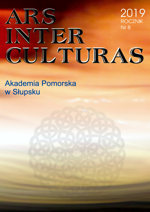
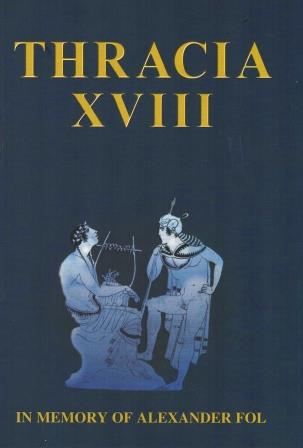
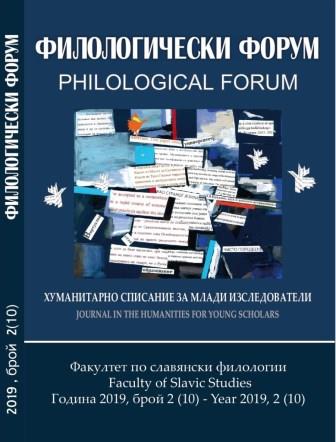
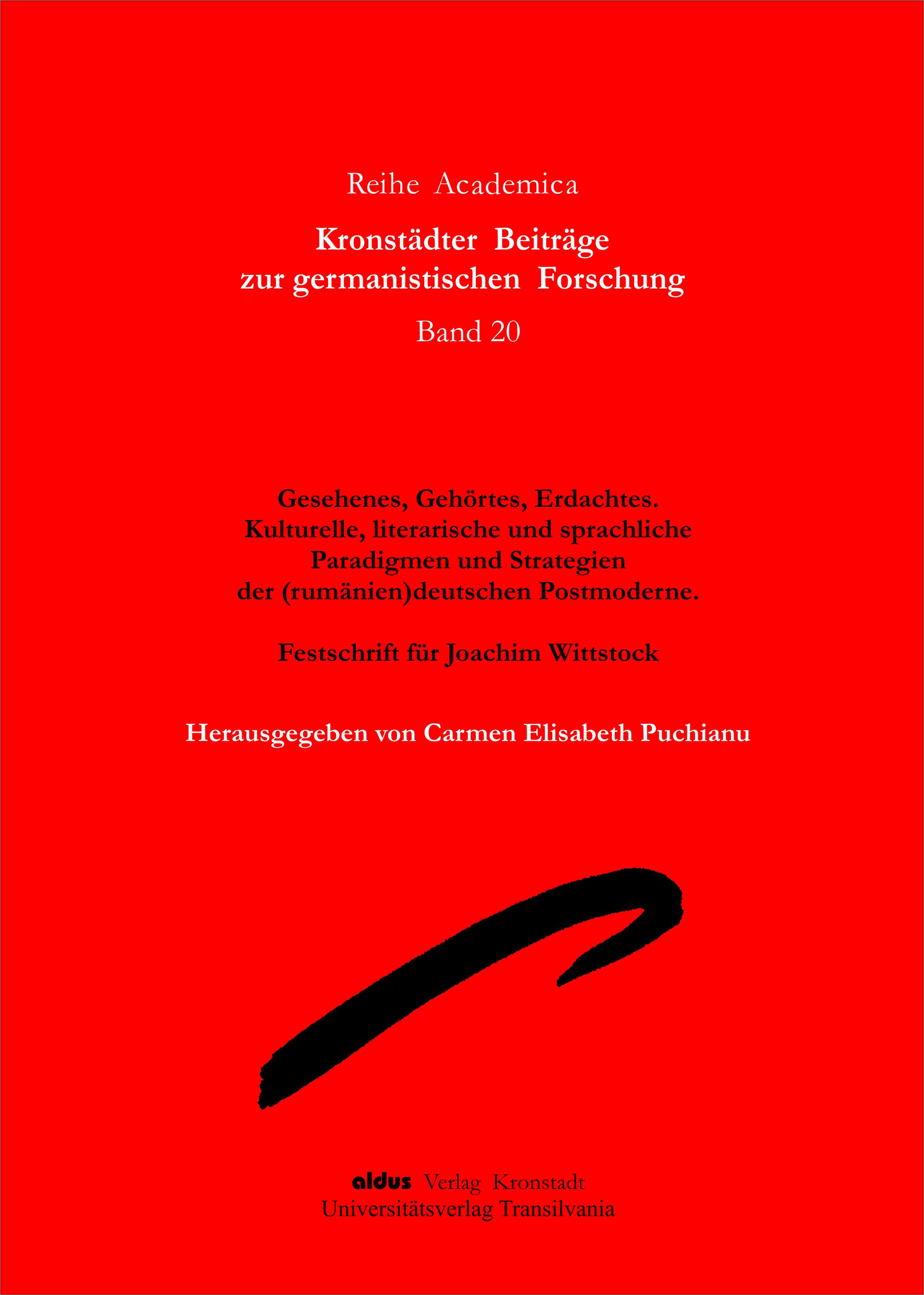
Die wiederholte Beschäftigung mit Erzähltexten von Joachim Wittstock einerseits und andererseits mit dem performativen Charakter des Schreibens veranlasste uns im Rahmen der studentischen Theater AG (Die GRUPPE) ein komplexes Bühnenprojekt ins Auge zu fassen, szenisch umzusetzen und dreimal auf¬zuführen. Es handelt sich um die Aufarbeitung der Erzählung Hades in Form einer szenischen Lesung mit performativer Darstellung der Handlung in Verbindung mit dem Einsatz intermedialer Ausdrucksmittel. Der folgende Artikel fasst die wichtigsten Aspekte der Arbeit an dem Projekt zusammen und erläutert den Transformationsprozess vom epischen Text zur Bühnenperformance.
More...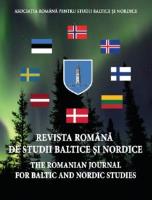
This article examines the way rulers are depicted in Icelandic literary sources such as Egils saga and some other literary sources belonging to medieval Scandinavia. We may presume that the construction and description of the image of Norwegian kings in that age, when Christianity had not totally replaced the Old beliefs in Iceland, are conclusive when attempting to better understand and analyze the mixed ideology of power in 12th and 13th century Norway and Iceland. Our aim is to explore the foundations of the political ideology of Early Medieval Norway, which were consolidated in the 12th and 13th centuries, when the authors and sources constructed an intercultural model of kingship based on the recently Christianized culture over which the influences of the old faith was overlapping.
More...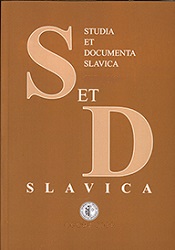
Jan Welzl (1868-1948) was a Czech traveller, globetrotter, polar explorer, hunter, gold prospector and wńter who lived on the New Siberian Islands for about 30 years. His memoirs and autobiograpbical a.ccounts were wńtten down with a help of the professional wńters and journalists (R. Tčsnohlidek, B. Golombek, E. Valenta) and became very popular in Czcchoslovakia. The paper will be an attempt to reconstruct and analyze, on the basis of Wełzl's literaty work, his way of seeing the polar regions as a space wbere the biding social standards and regulation.s bave been cbanged or suspended. Especially the Eskimo people are seen by Welzl as a social group in which the European bebavioral patterns and European social norms (moral, ethical, sexual, etc.) are undermined or non-biding.
More...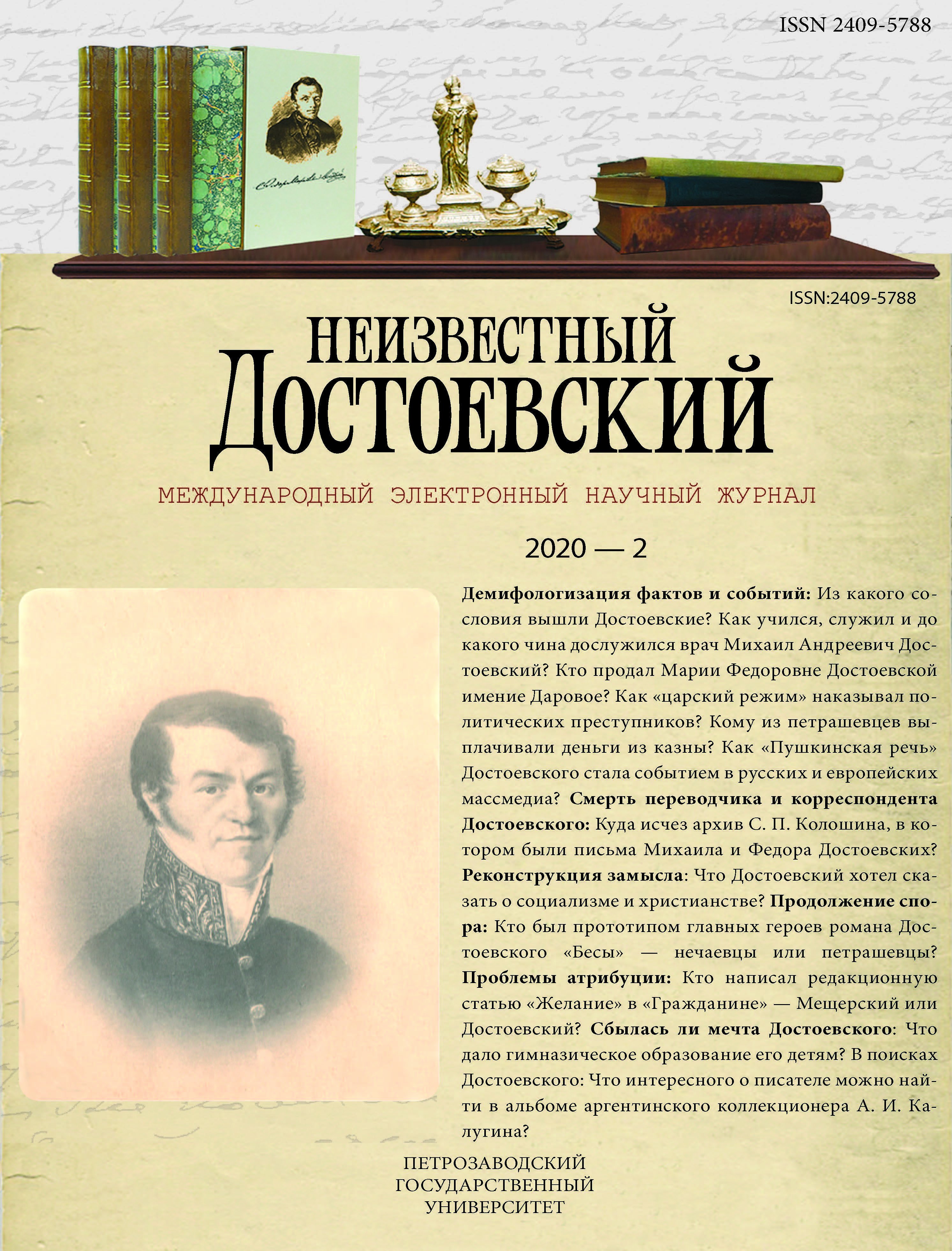
Two editors, namely editor-owner V. P. Meshchersky and editor-publisher F. M. Dostoevsky, wrote the editorials in the weekly "Grazhdanin" in 1873‒1874. The article is devoted to the attribution of the editorial article “Zhelanie” (“Desire”), published in the first issue of the weekly "Grazhdanin" in 1873. Researchers B. V. Tomashevsky, V. V. Vinogradov, V. A. Viktorovich attributed this article to F. M. Dostoevsky. The editorial board of the academic “Complete works in thirty volumes” argued that the note was penned by V. P. Meshchersky. I. Zohrab believes that “Desire” was written by V. P. Meshchersky and edited by F. M. Dostoevsky. The article conducts an examination based on stylistic and mathematical statistics methods. As a result of the comprehensive analysis of the text, both at the ideological (content) and linguistic level, the version of F. M. Dostoevsky’s authorship was rejected. A comparative analysis of “Desire” with the texts of Dostoevsky and Meshchersky and the conclusions made using statistical attribution methods allow us to recognize V. P. Meshchersky as the author.
More...
Dostoevsky's main concern was to educate his children, Lyuba and Fedya. After the writer's death, this desire was realized by his widow Anna Grigoryevna. Little was known about the education of Dostoevsky’s children, primarily from memoirs (penned by Anna and Lyubov Dostoevsky, Anna Ostroumova). The article presents previously unknown documents from the Central State Historical Archive of Saint Petersburg (name books, personal statements, etc.), containing information about the education of F. M. Dostoevsky's children: Lyuba — at the Foundry Gymnasium, Fedya — at the F. F. Bychkov Gymnasium (purchased by Ya. Gurevich in 1883). Letters related to the education of Dostoevsky's children were introduced into scientific circulation: Lyuba’s and Fedya’s to their mother, teacher V. Ivanova’s to A. G. Dostoevskaya. In the course of commenting on archival documents, the author emphasizes the continuity between home education and the education of the writer and his children, and reveals the role of A. G. Dostoevskaya in fulfilling Fyodor Mikhailovich's dream: to provide them with a quality education. Home education, first and foremost, the established tradition of family reading, which the Dostoevskys always heeded great attention to, allowed Lyuba to enter the gymnasium at the age of thirteen, bypassing two primary classes, and successfully reach the second, pre-graduation, class. Her classmates were A. P. Ostroumova (Lebedeva) and N. Ya. Polonskaya (Yelachich), who later became famous figures in Russian history. The education received at the gymnasium helped the writer's daughter to prove herself in literature during the years in emigration, to become a Russian writer in Italy, to represent the legacy of Dostoevsky in Europe, and to successfully conduct educational and cultural activities in Italy. The writer’s son Fedya, who studied at the St. Petersburg F. F. Bychkov Gymnasium in 1882-1889, entered the law faculty of the St. Petersburg Imperial University in 1890, became interested in horse breeding, and in the latter years of his life paid great attention to the preservation of his father's handwritten heritage. Thus, the children of F. M. Dostoevsky fulfilled his legacy: “Do not forget to study, both of you”.
More...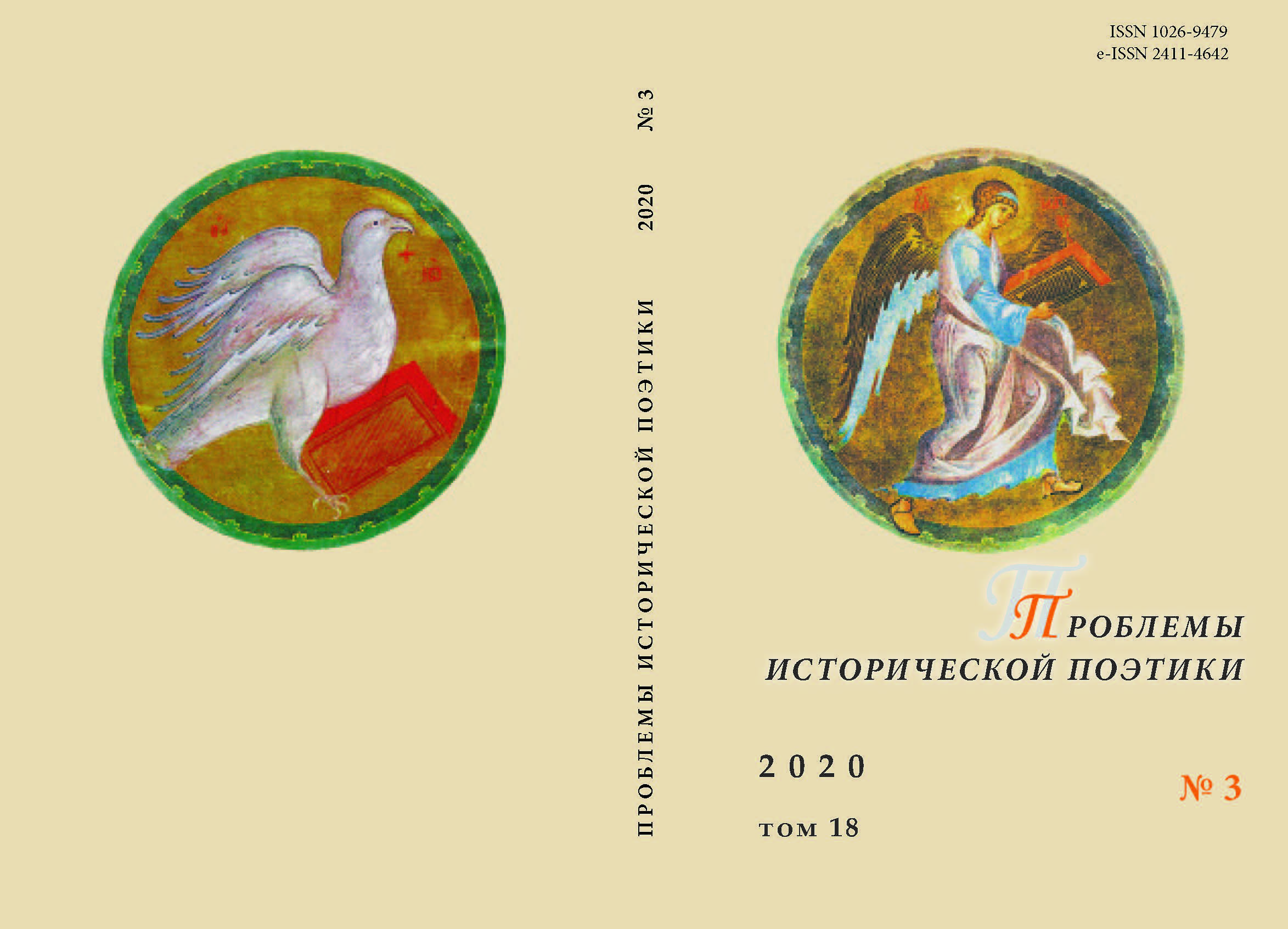
My Confession (1829) of P. A. Vyazemsky, one of the most important historical, literary and autobiographical documents of the 19th century, has never been the subject of independent study. Its focus of attention is the period of the Prince’s civil service in Warsaw, which predetermined not only the formation of his ideas of liberalism and constitutionalism, but also the collapse of his career as a civil servant in 1821. The article makes an attempt to identify the main formal-meaningful constants of My Confession. As a result of the study, the immediate motif and reasons for the prince's resort to confession, his addressee, the main goal and discursive practices are identified. The author of the article states that My Confession does not contain religious connotations; its main content is the consistent presentation of events, facts, thoughts, feelings (in the form in which they appear in the mind of the Prince almost a decade later), as well as the exposure of the libels of ill-wishers and the restoration of a good name. It is noted that the general autobiographical confessional strategy of Vyazemsky determines both the author’s repentance of the political “errors” of liberal youth and the exposition / propaganda of liberal views due to active auto-citation; at the same time, the fundamental attitude towards veracity is combined with the so-called “Political correctness” (allowing conscious silence about certain events, facts, persons in order to avoid knowingly lying).
More...
The repeated usage of the aphorism “Win yourself and you will conquer the world” in the works of F. M. Dostoevsky emphasized his words. Using different linguistic means the Russian writer compiled the message of a moral character striving for conveying it to his contemporaries, now with irony by putting it into mouth of Foma Fomich and Stepan Trofimovich Verkhovensky (the characters of the novels The Village of Stepanchikovo and its inhabitants and Demons respectively), now as an admonition by including it directly and indirectly into “The Life of a Great Sinner” and the novels Demons, The Brothers Karamazov and The Raw Youth. The dictum “Win yourself and you will conquer the world” echoes also on some pages of A Writer’s Diary, where an ethical and philosophical feature of Dostoevsky’s journalistic style manifests itself to the maximum. Modern researcher B. N. Tikhomirov has put forward a hypothesis that the saying “Win yourself and you will conquer the world” is based on quotations from the New Testament. The writer distilled this sententia from the writings of Saint Tikhon. The author of this article wondering who this aphorism belongs to and where it derives from, supposed and proved that it comes from the 57th sermon of St. Augustine or from the treatise “On the imitation of Christ” (“Imitatio Christi”) attributed to the Augustinian monk Thomas of Kemp. A copy of this treatise was kept in the library of Dostoevsky. After analyzing the hypothesis of B. N. Tikhomirov and her own assumption, the researcher has made both a philological analysis and the content one. As a result, she came to the conclusion that both these assumptions are possible and do not contradict each other. Given the fact that Saint Tikhon was well familiar with the writings of Saint Augustine, both these sources complement each other in the study of the aphorism? Win yourself and you will conquer the world”.
More...
The article analyzes the interpretation of F. M. Dostoevsky’s novel Humiliated and Insulted, proposed by N. A. Dobrolyubov in his essay Downtrodden people (1861). The interpretation of the images of Ivan Petrovich, Prince Valkovsky (an unknown source of his philosophy of egoism, La Rochefoucauld’s Maxims, is introduced into scientific circulation), Nelly is of particular importance, as well as the question posed by the critic about the main character of the novel. The mutual understanding between the author and the critic comes to an end when their axiologically opposed contexts of understanding come into force. The novel of forgiveness / unforgiveness is interpreted by the critic as the novel of downtroddenness / protest. Having discovered the energy of moral and social nonconformism in Dostoevsky’s novel, Dobrolyubov redirected it from the “native” moral and social channel to his own, social and moral, one. The essay of the critic who created his own version of the novel and writer’s previous works, thereby contributed to the aesthetic and ideological self-determination of Dostoevsky.
More...
Dostoevsky’s novel The Raw Youth repeatedly refers a reader to mathematics. This fact favors analysis and interpretations of the “mathematical” problem in the novel. Mathematics as an exact science is for Arkady Dolgoruky the main guarantor that his idea of becoming a “Rothschild” is achievable and true. This idea is based on “mathematics”, as it involves the calculation of income. “Mathematical validity” is authoritative for Kraft and other members of Dergachev’s circle,as well as Stebelkov, Lambert, Olya. The plot of the novel is based on “mathematical validity”. It is Katerina Nikolaevna’s fateful letter. The idiom “as simple as twice two makes four” appears six times in The Raw Youth. The debunking of this formula is a characteristic motif for Dostoevsky’s work. The motif of vulnerability of “mathematics” increases with the development of the plot. The Raw Youth’s “mathematical” idea collides with his feelings and impulsive actions. The “mathematical validity” turns out to be irrational. It basis is not logic, but conviction. The opposition to “mathematics” and rationality is “living life” in Dostoevsky’s work. It contributes to the rebirth of Arkady Dolgoruky. He evolves from Rothschild to Christ, from accumulation to self-sacrifice, from Law to Grace.
More...
The article approaches the problem of the correlation between the lyrical persons “I”, “You”, “She” in the poem Silentium by Mandelstam. Special attention is paid to the difference between the lyrical “She/It” (the original muteness, the first principle of life) and the lyrical “You” (the word, the heart, Aphrodite). The composition of the poem is remarkable for its mirror symmetry, both in terms of sound organization and semantics. The main idea of the poem is a return to the “first principle of life” through the acquisition of “initial muteness” by the lyrical “I”. In this situation, poetry turns out to be both paradoxical and transparadoxical reality, since the demand for “silence!” is implemented by means of the language (word).
More...